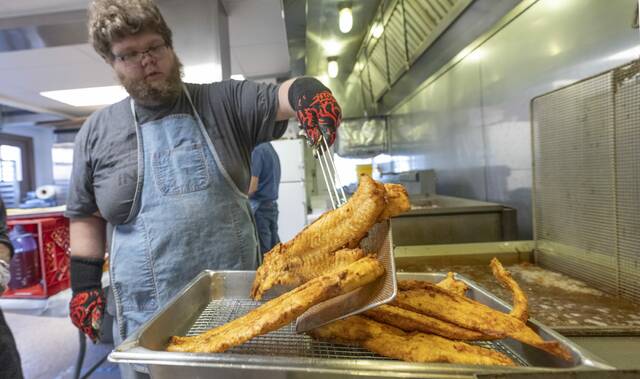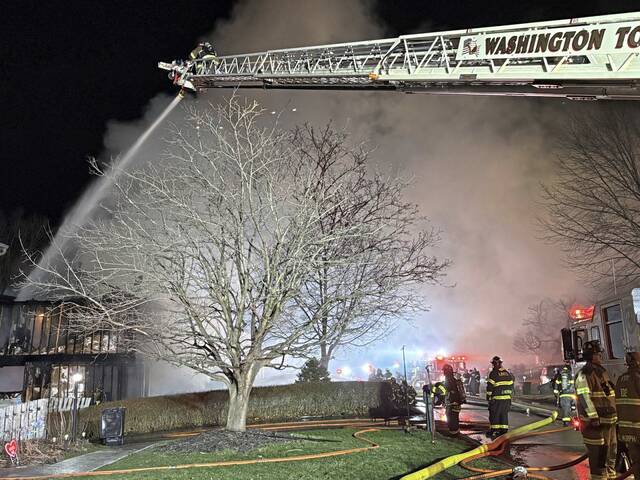The Salvation Army’s famous red kettles are a lot lighter than usual this year, and there are fewer of them to be found around Westmoreland County.
“As of right now, we’re not even at half our goal, and we have six kettle days left,” said Lt. Donna Hannan, assistant corps officer for the Greensburg Salvation Army. The organization had raised $29,000 of its $80,000 goal as of Friday.
The New Kensington Salvation Army’s situation is a bit better, but it still has a long way to go, having raised $49,463 of its $90,000 goal as of Wednesday.
Both corps have had trouble recruiting volunteers to stand at the kettles. Many people have chosen not to volunteer this year because of the risks of the coronavirus pandemic, said Major Scott Flanders of the New Kensington Salvation Army.
“I’ve had people who’ve done it for years and years and years who say, ‘Nope, I can’t do it,’ ” Flanders said.
As a result, the organizations are able to cover less ground than usual. The Greensburg corps usually has nine collection stands in stores but, without volunteers, it can’t man them all, especially on weekdays.
“Monday through Friday, we only cover three or four of them,” Hannan said.
Money raised during Red Kettle campaigns is an important part of local Salvation Army corps’ annual budget.
Greensburg’s corps scaled back its fundraising goal from $90,000 last year to $80,000 this year because of the pandemic.
New Kensington didn’t factor the pandemic into its goal because staff started working on next year’s budget in the spring, Flanders said.
“Nobody knew back when we prepared our budget that we would continue to be in the state that we’re in today,” he said.
If they cannot reach their goal, the corps face difficult decisions.
“We have to look at our budget and possibly cut some programs that benefit the community,” Hannan said.
The Salvation Army is a faith-based organization with a range of programs, which vary by corps. The New Kensington corps provides emergency housing for the homeless, gives food and clothing to those who need it and gives Christmas gifts to kids who otherwise might not get any. The organization also organizes after-school programming for kids.
“If there is a legitimate need, and we have the resources, we’ll do it,” said Flanders.
Significant cuts will be necessary unless the campaigns pick up significantly before Christmas, Flanders said.
“You’ve got to take a hard look at personnel and programs,” he said. “That’s where you’re going to save your money. We’re not going to save money by wearing sweaters and knocking the heat down to 50 degrees.”
Still, Flanders remains optimistic.
“Somebody, some way, somehow always comes through,” he said. “We trust in the goodness of God, and we trust in the generosity of people — generations of people — who have supported the cause.”








